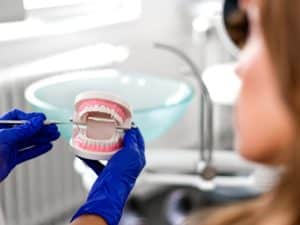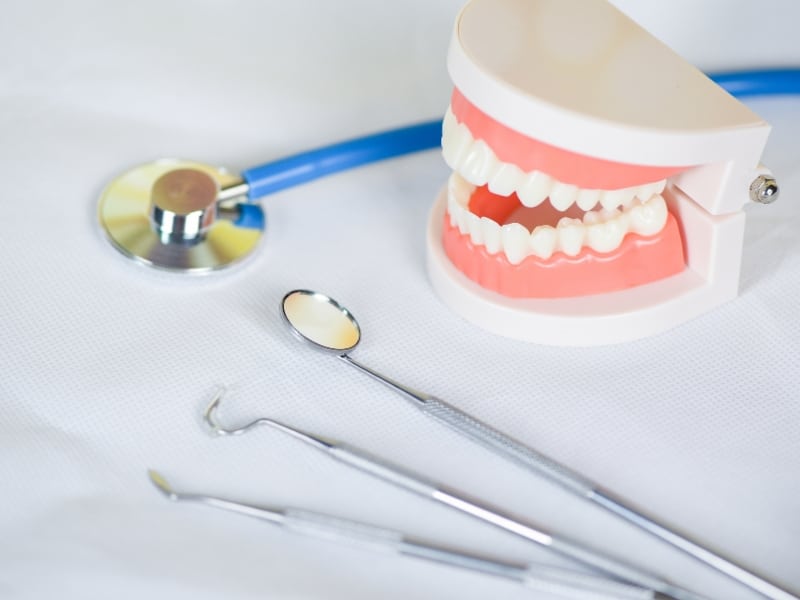Dentures are a popular solution for people who have lost their natural teeth. Whether you’re considering a denture for the first time or need a replacement set, one of the most common questions is the potential for pain. It’s natural to wonder if the process will be uncomfortable or if you’ll experience discomfort once your dentures are in place. This article explores the pain aspects of getting dentures and how to make the process as smooth as possible.
Is there pain involved in getting dentures?
Getting dentures generally does not involve severe pain, but discomfort may occur during the process. Here’s a breakdown of what you might experience:
- Fitting process: The initial fitting of dentures is relatively painless, but you may feel some pressure as the dentures are adjusted to fit your gums.
- Mouth sensitivity: Your gums may be sensitive after the initial fitting as they adjust to the new dentures. However, this discomfort is usually temporary.
- Mild irritation: During the first few days of wearing your dentures, it’s normal to experience mild irritation as your gums adapt to the appliance.
- Adjustment needs: After the initial fitting, some adjustments may be necessary to ensure your dentures fit comfortably. This can cause slight discomfort, but the process is quick and easy.
Can you experience pain immediately after getting dentures?
It’s possible to experience some discomfort immediately after getting your dentures, especially if you’re new to wearing them. Here’s what to expect:
- Initial soreness: It’s common for your gums to be sore after getting your dentures, mainly if your gums have been without teeth for a while.
- Pressure on the gums: The dentures may pressure your gums as they settle in place, leading to mild soreness.
- Adjustment period: In the first few days, you may struggle to talk or eat comfortably as your mouth adjusts to the dentures.
Are there ways to minimise denture pain during the fitting process?
Fortunately, there are several ways to minimise discomfort when getting dentures. Here are some tips to ensure a more comfortable experience:
- Choose a skilled dentist: A well-fitted denture is vital to minimising pain. An experienced dentist will ensure that your dentures fit comfortably from the start.
- Take breaks: If you’re new to wearing dentures, take them out occasionally to rest your gums.
- Use denture adhesives: Denture adhesives can help keep dentures in place, reducing any movement that might cause irritation or discomfort.
- Opt for soft foods: Eating soft foods during the first few days can help prevent further irritation of your gums.
- Follow aftercare advice: Proper denture care, including cleaning your dentures regularly, can help avoid gum irritation and prevent infection.
These tips reduce discomfort during fitting and make the transition to dentures much smoother. However, if you’re experiencing pain or difficulty, repairing damaged dentures promptly can help restore their fit and function, ensuring you remain comfortable and confident in your smile.
How long does denture pain last after fitting?
For most people, any pain or discomfort from new dentures will be short-lived. Here’s a general timeline:

- First few days: It’s normal to experience soreness and discomfort during the first few days as your mouth adjusts.
- First week: The discomfort should begin to subside after a week. However, your gums may still feel sensitive during this period.
- Ongoing adjustments: If you continue to experience pain after the first week, your dentist may need to make minor adjustments to your dentures to ensure a better fit.
In general, denture pain should not last for more than a few weeks.
What are the common causes of ongoing denture pain?
While most denture pain is temporary, ongoing discomfort can sometimes occur. Common causes include:
- Poor fit: Ill-fitting dentures can rub and irritate your gums, leading to persistent pain. Regular adjustments are crucial to ensuring a comfortable fit.
- Bone loss: Over time, the bone structure in your mouth may change, leading to looseness in your dentures. This can result in discomfort.
- Denture wear: As dentures age, they can become worn down and less effective at providing a comfortable fit.
- Infection or sores: If your dentures cause sores or an infection in your gums, it can result in ongoing pain.
- Gum disease: It’s essential to be aware of gum disease symptoms as they can indicate underlying oral health issues that may affect the fit and comfort of your dentures.
What pain relief options are available for denture wearers?
If you experience discomfort from your dentures, several pain relief options can help:
- Over-the-counter pain relief: Mild pain relievers, like ibuprofen, can help reduce discomfort in the short term.
- Denture pads: Soft pads designed for dentures can help reduce irritation and provide cushioning.
- Saltwater rinse: Rinsing your mouth with warm saltwater can soothe sore gums and promote healing.
- Cold compresses: Applying a cold compress to the outside of your jaw can reduce swelling and ease pain.
- Denture adjustment: If the pain is ongoing, your dentist can adjust your dentures to improve the fit and reduce pressure points.
Why choose a reliable dental clinic for your denture needs?
Choosing a reliable dental clinic for denture needs is essential for ensuring comfort, proper fit, and long-lasting results. Here’s why it’s necessary to find the right clinic:

- Experienced dentists: A skilled dentist can take accurate measurements and impressions to create dentures that fit well and provide comfort. An experienced professional can identify issues early on and adjust to avoid discomfort.
- Customised care: Reliable dental clinics take the time to understand your specific needs and preferences. They will provide a tailored solution that suits your mouth and lifestyle, helping you feel confident with your new dentures.
- Comprehensive aftercare: Proper aftercare ensures your dentures remain comfortable and functional. A trusted clinic will support any necessary adjustments, repairs, and ongoing care, ensuring your dentures stay in optimal condition.
- Up-to-date technology: A reputable dental clinic will use the latest technology and materials to create dentures that fit well and are durable. Modern techniques like 3D printing allow dentures to be designed more precisely for better comfort and aesthetics.
- Patient education: A reliable clinic will educate you on caring for your dentures and spot any potential problems correctly. This helps prevent discomfort or damage to your dentures and ensures they last longer.
Ready to get your dentures?
If you’re looking for comfortable, well-fitted dentures in Sydney, Marsfield Dental Care is here to help. Our experienced team will guide you through every step of the process, ensuring a pain-free and positive experience. Book a denture consultation today with Marsfield Dental Care!

